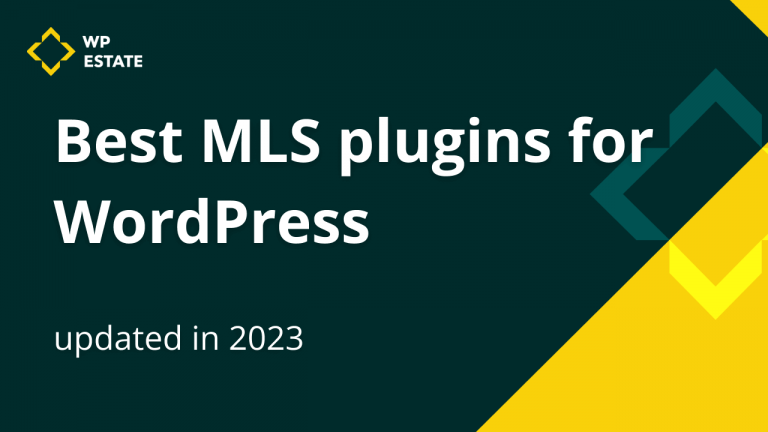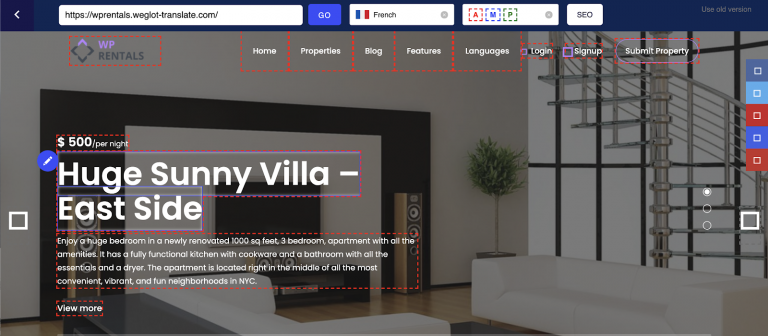Most if not all property buyers and sellers use the internet to find information related to property prices, ROI, and real estate news. You built your real estate website, managed to integrate iHomeFinder listings and it looks great – but that’s only half the battle.
You need to rank well in SERPs or search engine results page to start getting clients organically. The most effective way to get your site on the first pages of SERPs is through SEO or search engine optimization.
Before starting to work on your real estate websites SEO, you should remember that search engine algorithms are highly dynamic. They change regularly to improve the user experience for searches and to reduce harmful or unhelpful practices, also known as black hat SEO.
That being said, what worked a year or a few months ago will not be useful today and even worse, it could get your site penalized. That’s why it’s a good idea to be up to speed on the latest SEO best practices when working on your website. Here are a few real estate SEO tips with what works and what you should avoid in 2018:

Picking a domain name
What works
It’s a good idea to choose a domain name that includes a keyword since it will help you get found in searches easier. You can add a service + a brand (e.g. “brandrealestate.com”) or a service + a market (e.g. “chicagorealestate.com”). The choice is yours, but ideally, you might want to pick a domain name that is likely to be found when potential clients do an online search.
What doesn’t
You should never over-optimize your domain name, even if it seems like a good idea. Also, you shouldn’t pick a domain name that’s too long to remember by your customers. Overly optimized domain names do get penalized by Google and other search engines.
Real Estate SEO – Picking your keywords and your battles
What works
You should start off by doing thorough keyword research for your specific region or market. Sadly, there’s no perfect way to do this, and you’ll have to follow your gut since real estate is somewhat different than other markets. Long tail keywords may work, but they don’t necessarily have to.
Primary keywords – These are the bigger fish in the ocean, but you can’t reel them in with a newly built website (e.g. “New York Apartments”). These are the keywords with the biggest searches and the ones you want to rank for, but you won’t be able to at first. You should devote some individual pages for your primary keywords but don’t expect a walk in the park.
Secondary keywords – These are somewhat popular keywords without too much competition. The bread and butter of your keyword research – these are the main ones you should use for your website. They can be related to primary keywords but more specific or with a longer tail (e.g., “Brooklyn Apartments”)
Auxiliary keywords – These are niche keywords with low competition which you can rank for with a freshly built website. You shouldn’t focus only on one type of keyword but all of them together, with an emphasis on secondary ones. Good auxiliary keywords will help you later with linking to your website (e.g., “Brooklyn Apartments for rent”).

What doesn’t
Keyword stuffing was very popular 10 years ago due to one main reason – it worked. Webmasters and Google abused this technique, so search engines were forced to change their search algorithm to provide users with a better search experience. Other tips include:
· Keep your content natural and only place keywords where it’s appropriate.
· Build your website according to your visitors’ needs
· Provide users with valuable information or answers to specific questions
Linking your way to the top
What works
Once you have your keywords research and content set up, it’s time for a little link building. There are two types of link building: internal and external.
A healthy website should have a dose of both. Links are also do-follow and no-follow, the difference being that a do-follow link sends link juice through while the other doesn’t.
You should always link to and from related businesses or services, pages your visitors will find most useful. ”Natural” is the key to good link building practices. You will need a good deal of incoming links to have your website rank in the first pages of SERP.
These links can come from blogs, social media or other websites. The best way to get these links is by creating useful content that’s worth linking to. You can also contact news sites, businesses or bloggers and ask them to feature your content on their websites.
What doesn’t
Unnatural links will get you penalized. So will spammy links or links from websites which are not related to your business.
Buying and selling links is also looked down upon by Google’s search algorithm – beware of the consequences of not having a link is sometimes better than having a bad link.

Real estate blogs
What works
Your blog is a great way to create a sense of connection between you and your visitors.
Create exciting and relevant blog posts for your market, in-depth pieces that stand out and set you as a real estate expert.
Your blog articles can also help you get links from other bloggers or businesses if appropriately done and full heartedly.
Keep a steady publishing schedule to continuously grow your audience – posting daily is a good idea.
That being said, your blog is also an excellent opportunity for internal link building, when it’s appropriate or useful for visitors.
What doesn’t
Don’t use generic content or copy content on your blog as Google will surely penalize your website. Writing content that’s too vague or too short won’t get any viewers.





